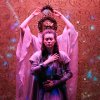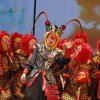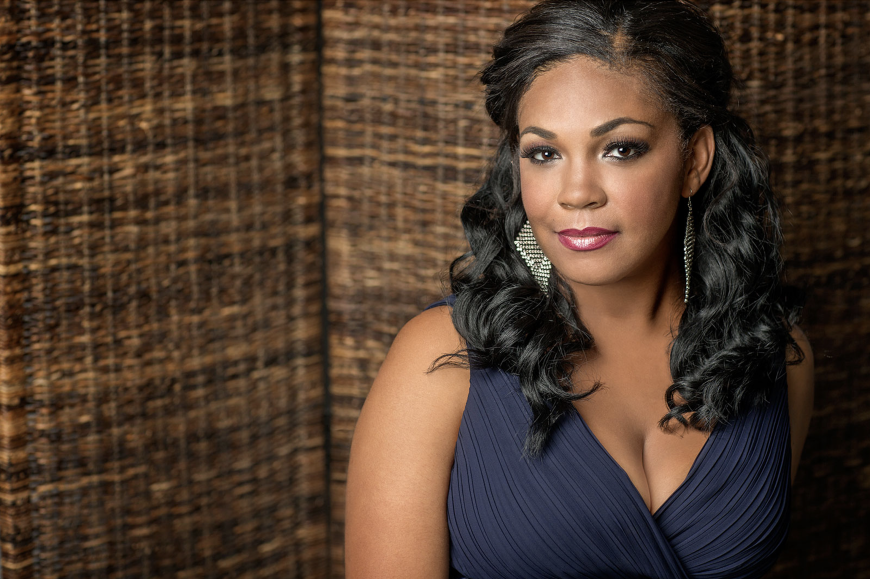
Ever since making her Los Angeles Opera debut in 2010 as Barbarina in The Marriage of Figaro, Soprano Janai Brugger has been a mainstay at the Dorothy Chandler Pavilion. Her subsequent roles have included Pamina in The Magic Flute and Servilia in La clemenza di Tito.
This month, Brugger will return to LA Opera as Mimi in Giacomo Puccini’s La bohème from Nov. 22 – Dec. 14.
Born in Darien, Illinois, Brugger earned her Bachelor of Music degree from DePaul University in 2005 before becoming a member of the young artist program at Chicago Opera Theater the following year.
She joined San Francisco Opera’s Merola Opera Program in 2010, and the Domingo-Colburn-Stein Young Artist Program from 2010–2012. She won both the Operalia competition and the Metropolitan Opera National Council Auditions competition in 2012.
In 2023, Brugger sang the titular role of Carlisle Floyd’s Susannah at Opera Theatre of St. Louis and Mary Jane Bower in Houston Grand Opera’s world premiere of Jake Heggie and Gene Scheer’s Intelligence. The recently-released recording of Intelligence, featuring Brugger’s singing, just received a 2026 Grammy Award nomination for Best Opera Recording.
In addition, the singer’s 2024–2025 season included several symphonic engagements, notably composer Aaron Zigman’s oratorio, Émigré, with Deutsches Symphonie-Orchester Berlin and Hong Kong Philharmonic. Brugger also returned to the Met in March for an acclaimed performance of Pip in Moby-Dick.
SF Classical Voice caught up with Brugger between LA Opera rehearsals. During the conversation, the soprano shared her similarities with Puccini’s Mimi, her interest in contemporary opera, and how her voice teacher (the late Shirley Verrett) helped change her life.
What first drew you to opera?
To be honest, my mom. She’s always been infatuated with classical music, opera, and the symphony. When we were very little, she was always taking us to see Lyric Opera of Chicago, or the Chicago Symphony downtown, so it was very much a part of my upbringing. I’d say I was always intrigued by it, but never considered that I’d be making opera my career.
Because I had been in musical theater in junior high and high school, that’s where I thought I was headed. I loved being onstage, but when I started voice lessons as a freshman in high school, my teacher heard something in my voice and she said, “I really want you to consider being trained more classically and look into opera.” That’s how my journey started.
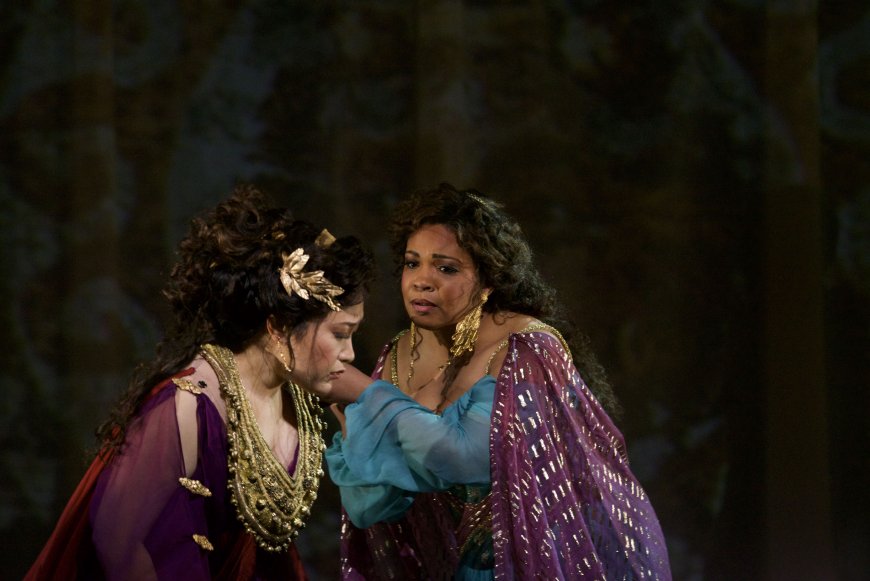
You recently made your role debut as Donna Elvira in Don Giovanni at the Met, with the New York Times’ Joshua Barone writing, “Mighty in her own way…is the soprano Janai Brugger’s Donna Elvira, whose sound was clearheaded even when her character’s mind wasn’t.” What was that like for you?
Oh, gosh, it was a thrill. It was with an amazing cast and conducted by Yannick Nézet-Séguin, so it was really fun and well received. It got great reviews and feedback from audience members — it was exciting to experience that energy from the audience. I definitely would love to sing Donna Elvira again.
You’re based in Chicago, but you’ve spent a lot of time with LA Opera. What are your thoughts on working so frequently with the company?
Los Angeles Opera will always be a home theater to me because I started my young artist’s residency here in 2010 through 2012. The treatment, the experience, the education —Any time I get to come back here, it’s like coming home.
And the audience is one of the best to perform for. [They’re] so warm, so engaged, so welcoming. I’m beyond grateful and excited to be back in this production where I [originally] sang Musetta. To sing Mimi in my role debut with this company, in this production, is truly special.
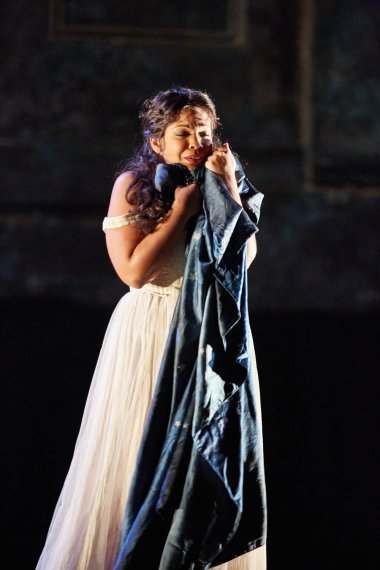
How do you prepare for a role like Mimi? Do you see parts of yourself in her?
For every role that I sing, I always try to draw from my own personal experiences. [I do this] to see what I can bring to help tell that character's story, but also to make it uniquely my own.
So, yes, I do see a lot of myself in Mimi, as well as I did in Musetta. But Mimi is such a beautiful character to portray — her, warmth, her kindness, her passion, her despair, it's all intertwined. And it's powerful. It's a very short arc, but that's the magic of Puccini.
To prepare, it’s mostly the old school way of translating word for word — not only my part, but everybody else’s — so I can understand what’s being said to me and I can react naturally [and] honor the language. Then, I listen to numerous recordings of different artists, different conductors, just to get the idea of different tempos and nuances. And then I ask myself, “How can I make it my own?”
Regarding roles, you premiered the character of Mary Jane Bowser in Jake Heggie’s and Gene Scheer’s Intelligence. The character is based on a real woman who was born into enslavement and sent to work as a mole in the Confederate White House by her employer, Elisabeth. How did you approach portraying such a complex historical figure?
I had never heard of her before, [so] it was fascinating when Jake and Gene told me about her story. I did my own research and was fascinated by her journey. She was a slave, but a “free” slave in that she lived in the Van Lew household and she was educated. They sent her to school so she could read and write, and she had this ability to recall information like a photographic memory.
That aided her so that she was able to gather intelligence secrets about the [Civil] war and take it back to Elizabeth, who was also a major part of how things shaped up to win that war. The relationship of Elizabeth and Mary [is] so connected, and that’s something that Mary is grappling with throughout the whole opera.
Would you like to do more new operas?
Yes, I would. It’s always thrilling to do something that no one’s seen before, put your stamp on it, and be part of a world premiere. It’s a rush, it’s exciting, and a huge responsibility. You always hope it’s received well. Luckily, Intelligence was, and I hope it’s done more and seen more. I also enjoy working with living composers.
What did you learn from studying under Shirley Verrett?
With Ms. Verrett, it was, first of all, her energy. She's a consummate artist and has so much knowledge to pass on to all of us — not just her students. Her command of the stage was something that always drew me to her. She had the audience in the palm of her hand before she even opened her mouth, because she's so devoted to the character.
I try to take that into consideration — leaving Janai at the door and coming in as whatever character I'm playing. I think, ‘What is that character going into? What is the subtext that's happening in my own head?’ in order to perform with that [character’s] energy before I enter the stage.
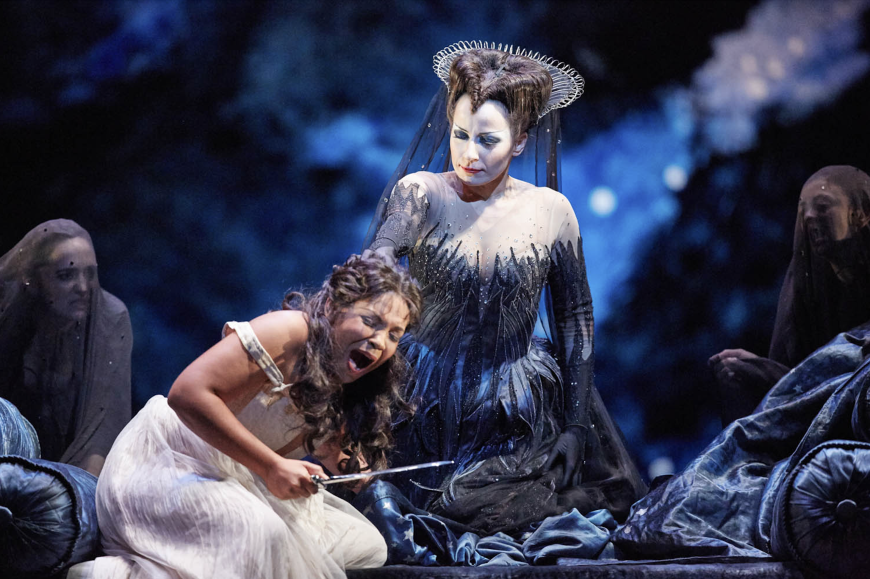
I don't know if I accomplish it. I probably never will like Miss Verrett did, but the fact that she was able to pass that [wisdom] onto us — the importance of taking the seriousness of what our characters are going through, and the acting aspect — is something I really gravitated towards and took from her.
Circling back to La bohème: What do you want audiences — especially new audiences — to take away?
The beauty of community, friendship, and love. And I really hope that they get lost in the music, that they allow themselves to feel what Puccini was feeling himself when he wrote each melody.
I can't imagine anyone who's never experienced it before leaving the theater without having been moved. That's what I would hope; that they’re moved in a way they weren't expecting to be, because they relate to these characters who are struggling but still find joy.


